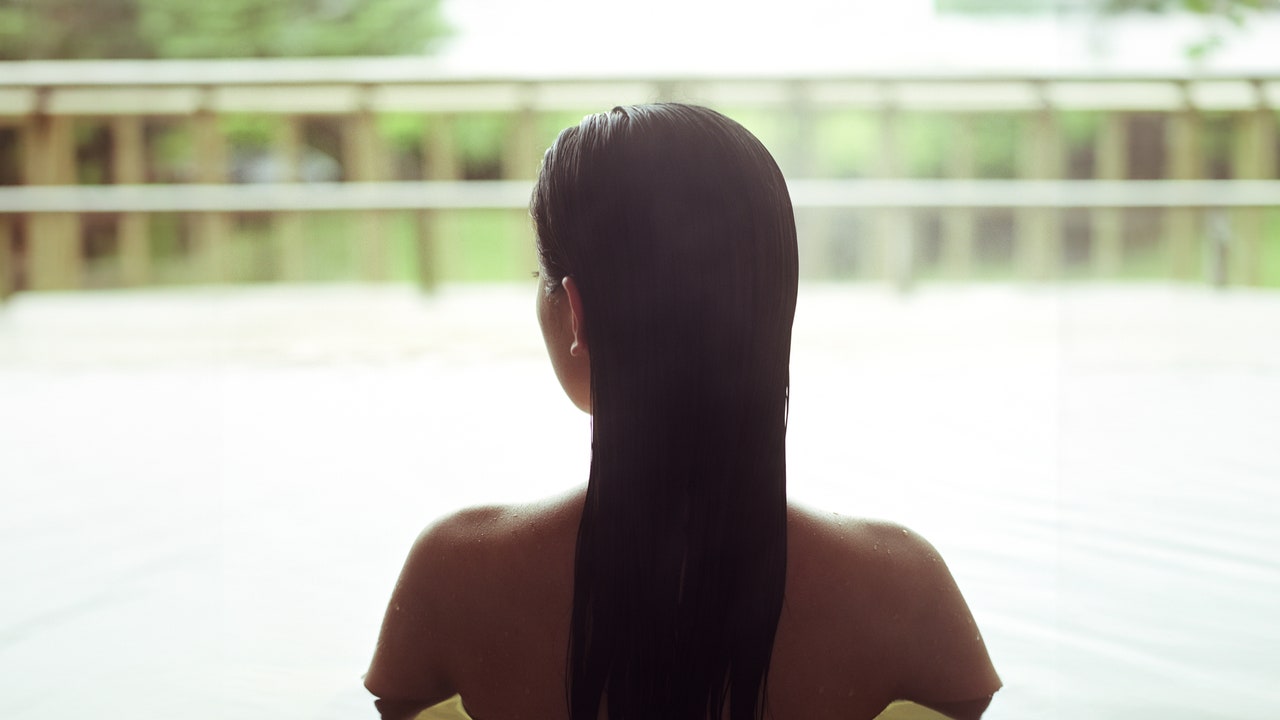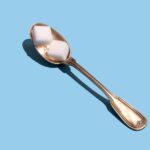After letting my gaze linger a little too long, I realized all the other women had their eyes downcast, suggesting that here, a woman’s body is no one’s business but her own. But what struck me most was the silence. There was an air of confidence that can only come from women who are living in their bodies, fully embodied and present. A woman in the corner of my pool had her back turned to me and was transfixed on a tree in the inner courtyard. In the changing room, another woman gazed at herself in the mirror—not fixing or perfecting, just observing, as if seeing herself for the first time.
Over the next 10 days I spent traveling across the southern Japanese island of Kyushu, I bathed in an onsen at least once a day. With each new bathing experience, I grew more confident being naked. This accidental exposure therapy made me realize I was healing not just by soaking in the mineral-rich water and shedding dead layers of skin with each laborious scrub-down, but by shedding the towel to bare it all, and watching others do the same. Turns out there is real evidence that getting naked boosts confidence. Research by Dr. Keon West, a professor of psychology at Goldsmiths, University of London, finds that spending time naked around others—what he refers to as ‘naturism’—improves body image, self-esteem and life satisfaction. The research describes naturism as an important counterforce to overexposure to the idealized bodies we grow up believing are the norm.
As I observed these women diligently performing their multi-step skincare routines in the airport bathroom mirror before my departing red-eye flight, I wondered what, exactly, motivates Japanese women to bathe in an onsen on a regular basis. In North America, the daily task of cleaning oneself is like a form of labor. Here, the bathing rituals appear even more laborious and time-intensive, but feel less about vanity. As an ancient practice dating back centuries, the mindful ritual of bathing seems to remain a genuine act of self-care.
Could the same be true of public bathing in the neighboring beauty capital of Seoul? Eight months later, I returned to my father’s native country, eager to find out. Like in Japan, public bathing has long been revered in South Korea, with evidence of saunas used for medicinal purposes dating back to the 15th century. But it was during Japanese rule in the late 19th century that Korean bathhouses known as jjimjilbangs (which translates to ‘heated room’) took off. Like an onsen, the modern Korean jjimjilbang has a variety of hot and cold baths, steam rooms and saunas. The most obvious difference is they don’t source hot spring water for their pools, and while they are a regular part of Koreans’ self-care routine, the facilities can be more social in nature, with some offering karaoke bars, dining areas and sleeping rooms (many are open 24 hours).
Read the full article here




